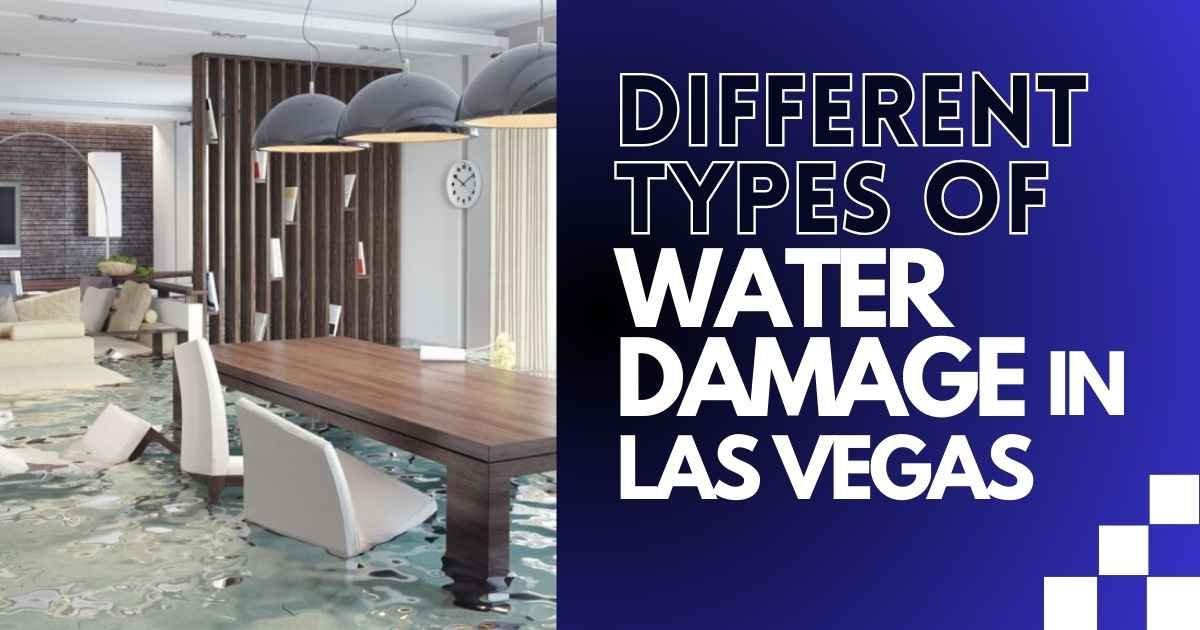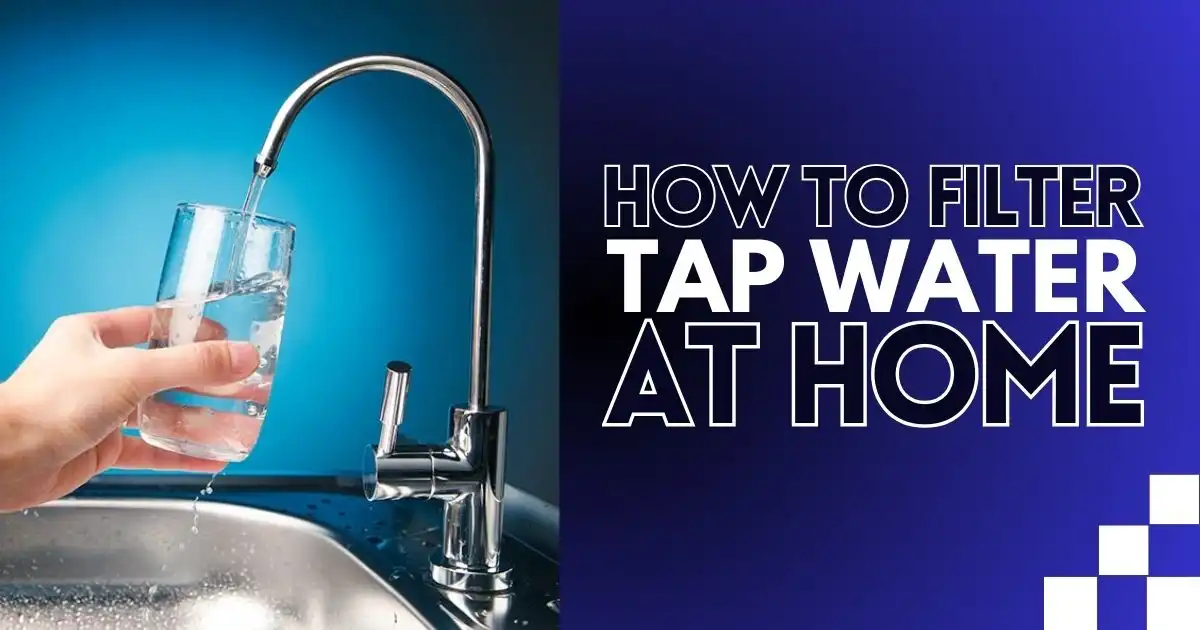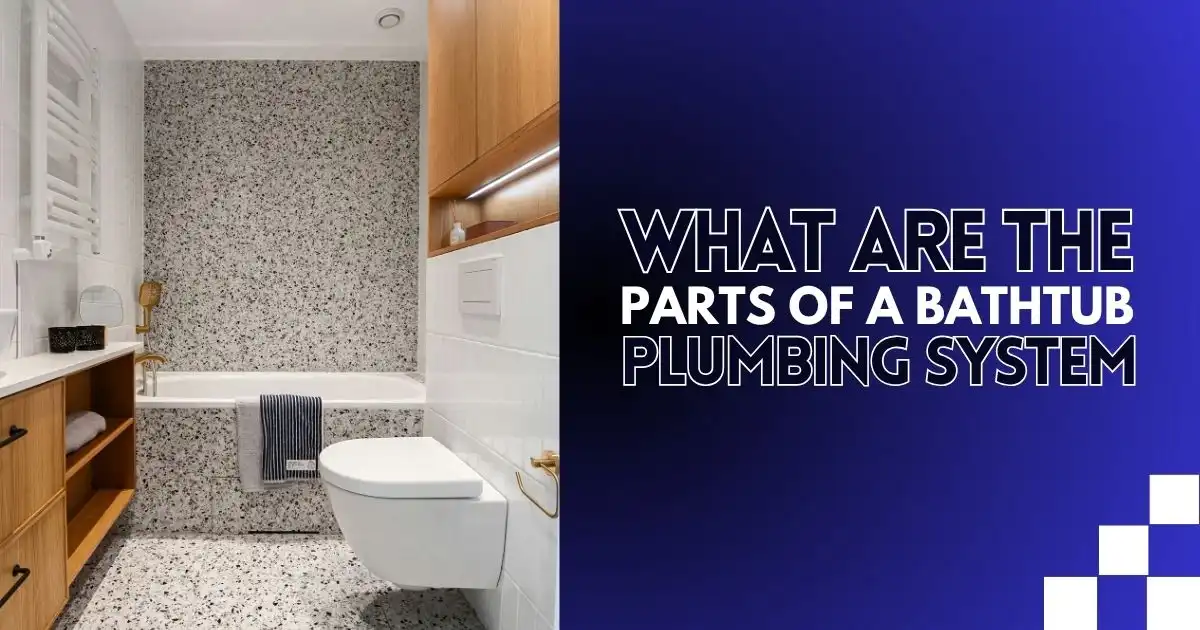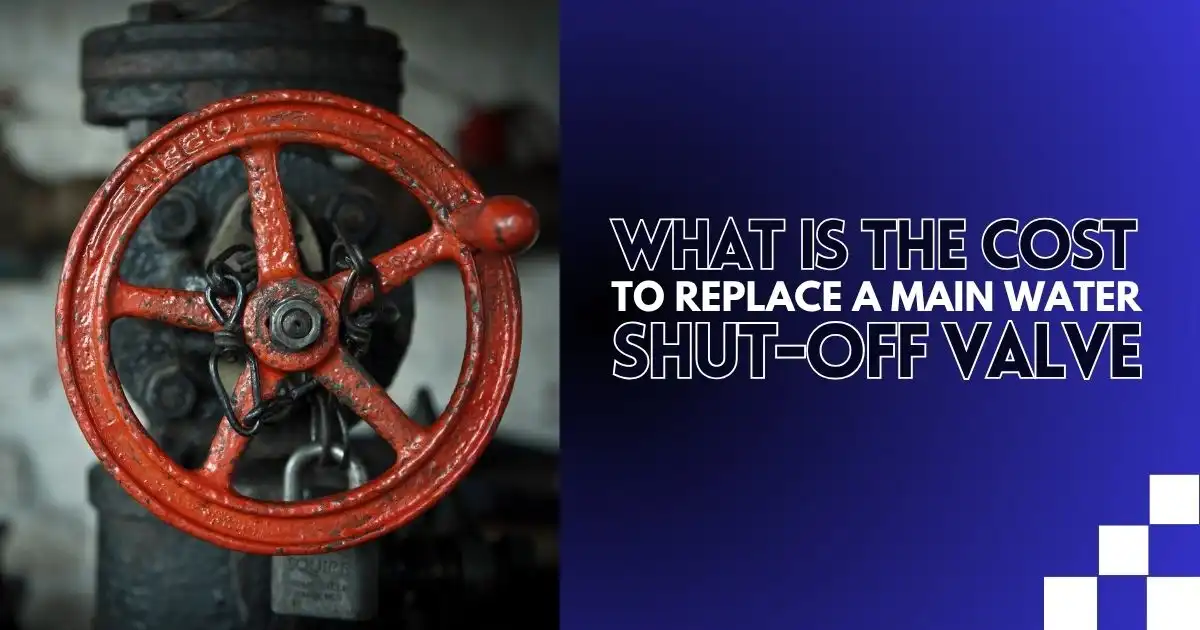It’s really challenging when you’re a single parent or someone with little knowledge about handling issues like broken pipes, water leaks, or water damages, and these problems suddenly occur in your home.
In 2024, Las Vegas experienced a variety of water damage incidents, primarily due to extreme weather conditions and infrastructure challenges.
- Flash Floods: Approximately 40% of the water damage incidents were caused by flash floods, mainly due to an intense monsoon season.
- Plumbing Issues: Around 30% of the cases were related to plumbing problems, such as burst pipes and leaks, worsened by aging infrastructure.
- Other Causes: The remaining 30% of water damage was due to factors like roof leaks, appliance failures, and sewage backups.
What is Water Restoration?
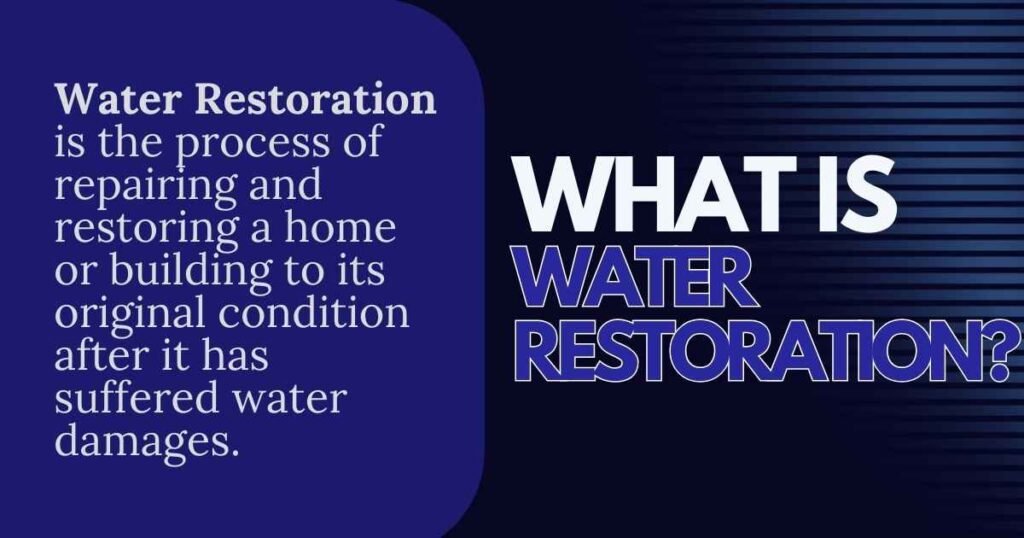
Water restoration is the process of repairing and restoring a home or building to its original state after suffering from water damages. This process involves more than just drying out the area; it focuses on repairing and replacing parts of the structure that have been damaged by water.
Water restoration usually follows water mitigation, which is the first step in dealing with water damages. Mitigation includes stopping the water source, removing excess water, and thoroughly drying the area to prevent further damage and mold growth. Once mitigation is done, restoration begins.
6 Types of Water Damage in Las Vegas
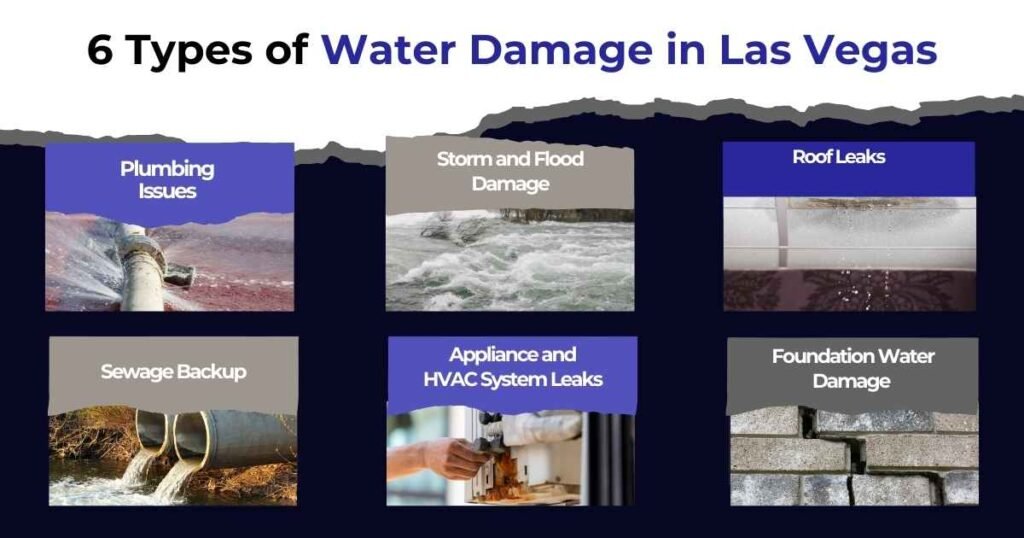
Water damage can be a significant issue for homeowners and businesses alike, especially in a city like Las Vegas where the climate and occasional weather events can lead to unexpected flooding and leaks. Understanding the different types of water damage that can occur is important for effective prevention, swift response, and proper restoration.
1. Plumbing Issues
Plumbing problems are one of the most common causes of water damage in Las Vegas homes and businesses. Burst pipes, leaking fixtures, and malfunctioning appliances like dishwashers or washing machines can lead to significant water damage if not promptly addressed.
The dry climate in Las Vegas can contribute to the wear and tear of plumbing systems, making them more susceptible to leaks and breaks. Regular maintenance and timely repairs are key to preventing extensive damage.
2. Storm and Flood Damage
Although Las Vegas is known for its arid desert climate, the city can still experience heavy rainfall and flash floods, especially during the monsoon season. These sudden storms can overwhelm drainage systems, leading to flooding in homes and businesses.
Floodwaters can bring in debris, mud, and contaminants, causing severe damage to structures and personal belongings. Proper drainage systems, flood barriers, and quick response plans are essential in minimizing the impact of storm and flood damage.
3. Roof Leaks
The intense sun and occasional rain in Las Vegas can wear down roofing materials, leading to leaks. These leaks can go unnoticed for a long time, slowly causing water damage on ceilings, walls, and insulation.
Regular roof inspections and maintenance are key to preventing leaks and the water damage they cause. If you see signs like water stains on the ceiling or dripping water, address the issue immediately to avoid further damage.
4. Sewage Backup
Sewage backups are another serious type of water damage that can occur in Las Vegas. When the city’s sewer system becomes overwhelmed, it can cause sewage to back up into homes and businesses.
This type of water damage is not only unpleasant but also hazardous, as it involves contaminated water that can pose health risks. Professional cleanup and restoration services are essential in handling sewage backups, as they require specialized equipment and expertise to ensure safe and thorough remediation.
5. Appliance and HVAC System Leaks
Water heaters, air conditioning units, and other household appliances can leak over time, leading to water damage. In Las Vegas, where air conditioning is a necessity, HVAC systems can be a common source of water damage if not properly maintained.
Condensation lines can become clogged, and drainage pans can overflow, causing water to seep into walls, floors, and ceilings. Regular inspection and maintenance of these systems can help prevent leaks and the resulting damage.
6. Foundation Water Damage
Water can sometimes seep into the foundation of a building, causing hidden damage. In Las Vegas, where soil expands and contracts due to temperature changes, foundation cracks can develop, letting water in.
Fixing water damage at this stage is important, as it can prevent structural issues, mold growth, and other problems. Proper drainage around the foundation and regular inspections are key steps in preventing water from infiltrating your property and causing further damage.
How to Get Insurance to Pay for Water Damage

To get your insurance to cover water damage, notify your insurance agent as soon as possible. Acting quickly is key since mold and mildew can develop within 24-48 hours. Insurance companies usually have 24/7 hotlines to help with claims and provide cleanup advice.
Think about hiring a professional water damage restoration company for cleanup, especially if you can’t handle it yourself. Your insurance agent can help you find local options. Make sure the company you choose is licensed and insured, and check online reviews before agreeing to any contracts.
It’s important to take pictures of the damage and talk with your insurance agent and the restoration team about safety measures. In serious cases, you might need to leave your home, and your insurance would cover costs like hotel stays and meals. Keep in mind that insurance policies usually don’t cover the appliance that caused the damage, like a leaking ice maker or dishwasher.
Choosing Between Professional Help and DIY Solutions
When dealing with water damage, you have two main choices: hiring professional water damage restoration services or trying to cleanup water damage on your own. Choosing professional help ensures a complete restoration, as they use specialized tools and have the knowledge to effectively minimize damage.
Vegas Plumbing Pros offers quick and dependable services, guiding you through the restoration process with care. However, if you decide to do it yourself, be sure to follow safety guidelines and basic cleanup methods.
While a DIY approach might address immediate issues, it may not fully fix underlying problems. For a complete restoration and peace of mind, trust the experts at Vegas Plumbing Pros.
Final Thoughts
Water damage in Las Vegas can come from various sources, including flash floods, plumbing issues, and factors like roof leaks and appliance failures. Each type of damage needs a different approach for effective restoration.
Understanding these risks and taking preventive measures, such as regular maintenance and quick responses to leaks, helps protect your property. Damage caused by natural events or structural problems should be addressed promptly to minimize long-term impacts and costly repairs.
FAQs
What usually causes water damage?
The most common cause of water damage is usually plumbing problems, such as burst pipes, leaking fixtures, or broken appliances like washing machines or dishwashers. Natural disasters like floods or storms can also cause serious water damage.
What’s the best way to repair water damage?
The best way to handle water damage repair depends on the extent and cause of the damage. Typically, you should first stop the water source, remove excess water, dry the area thoroughly, and then repair or replace damaged materials. For more severe cases, professional water damage repair services offer specialized tools and expert knowledge to ensure everything is fully restored.
How do you know if there is water damage?
Signs of water damage include water stains or discoloration on walls or ceilings, peeling or bubbling paint, warped or buckled floors, musty smells, or the presence of mold or mildew. An unexpected increase in your utility bills without a rise in water use could also signal hidden water leaks.
What kind of damage does water do?
Water damage can harm structures, belongings, and indoor environments in various ways. This damage may include weakening of building materials, rotting wood, and corrosion of metal parts. Water can also damage electrical systems, creating safety risks.
